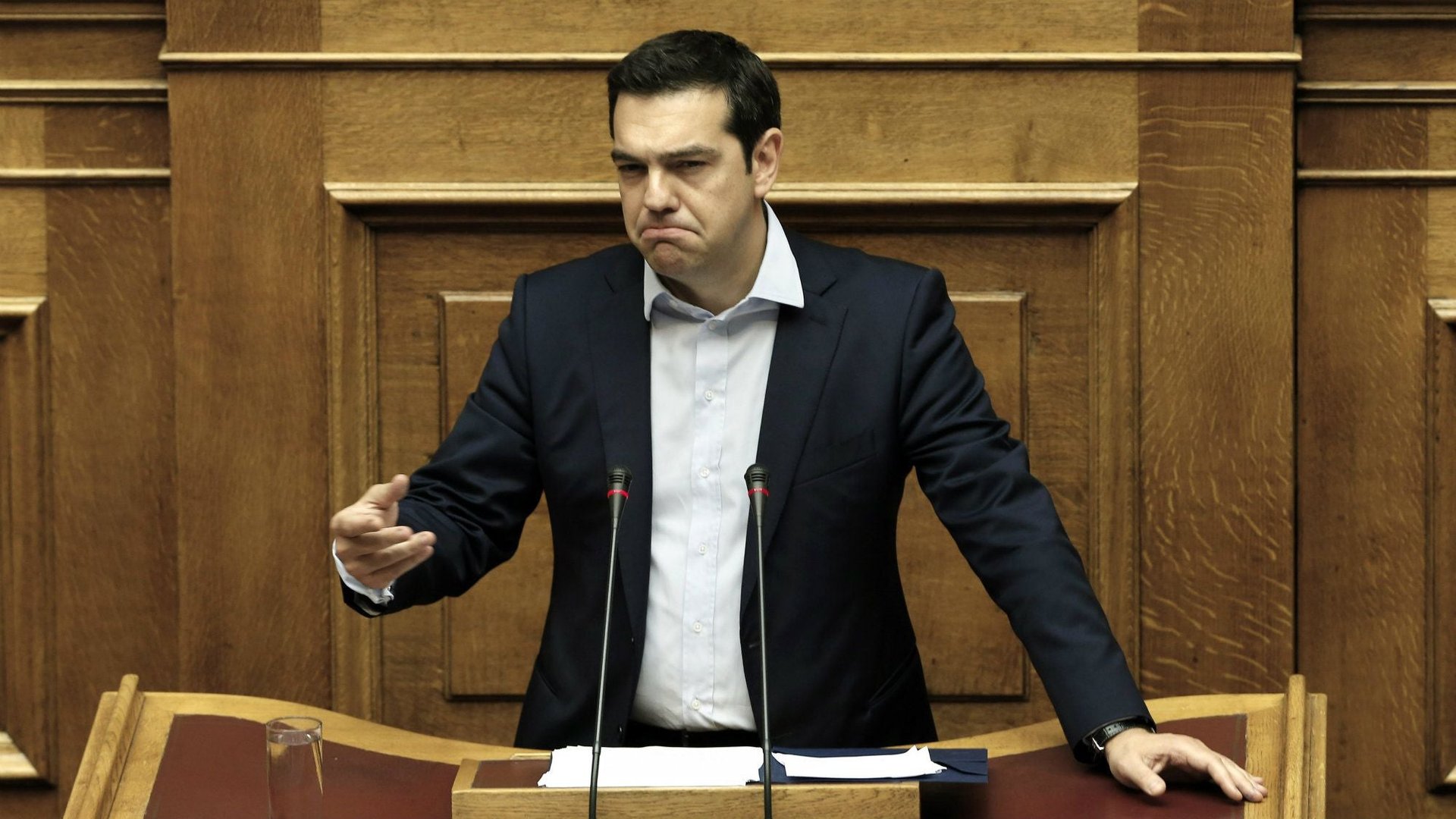Greece makes a final, desperate—and probably doomed—plea for cash
Mere hours before Greece defaults on a loan repayment to the IMF and sees its bailout deal expire, prime minister Alexis Tsipras thought the time was right to launch a new offer to lenders.


Mere hours before Greece defaults on a loan repayment to the IMF and sees its bailout deal expire, prime minister Alexis Tsipras thought the time was right to launch a new offer to lenders.
The Greek leader lodged a request with Dutch finance minister Jeroen Dijsselbloem, who also chairs the euro zone’s rescue fund, for a two-year, €29.1 billion ($32.5 billion) loan to cover the country’s debts coming due over that time. “As you are aware, the republic faces urgent and pressing financial problems,” Tsipras wrote, with much understatement, in the letter obtained by Politico.
The prime minister also asked for Greece’s existing debts to be restructured and for its existing bailout agreement to be extended in the meantime, “to ensure a technical default is not triggered.” The expiry of the bailout—which has already been extended twice in the past six months or so—will take some €15 billion ($16.7 billion) in potential funds available to Greece with it.
Dijsselbloem will convene an emergency conference call this evening among euro zone finance members to discuss the request. By all accounts, the proposal is a non-starter. After all, approving a new loan deal would require a vote in several euro member parliaments, most notably Germany’s (pdf, p. 4). Needless to say, this can’t be turned around in a matter of hours.
Indeed, German chancellor Angela Merkel says that a new bailout package won’t be considered before the Greek referendum on July 5 on the previous rescue deal. The prime minister’s plea also excludes any involvement by the IMF, which he has previously dubbed “criminal” but which other euro member states insist should be part of any rescue deal.
When Tsipras unexpectedly called a referendum a few days ago, all work on negotiating reforms in return for an extension of the current bailout came to a halt. Greece’s lenders refused Tsipras’s request for an extension then, and they are likely to do the same today.
So what gives? The prime minister’s somewhat sloppy letter was clearly penned in haste (pdf), and is vague on the details of what Athens will offer in return for more cash. And as he fights to convince citizens to vote against the country’s current bailout conditions—with polls suggesting that voters will go the other way—leaders from the rest of Europe are banding together to stress that the vote is actually about whether Greece should remain in the euro zone or not. A “yes” vote would put the prime minister in an awkward spot, charging him with implementing reforms that he has rejected in no uncertain terms. (A resignation and snap elections become likely in that case.)
After months of wrangling, this out-of-the-blue offer from Tsipras seems above all like a tactical ploy. It provides fodder for his government to claim that lenders are bullying them, refusing to release the financial aid that it needs to reopen its banks and repair its shattered economy. We will see if this works in a few days’ time, when the people have their say.